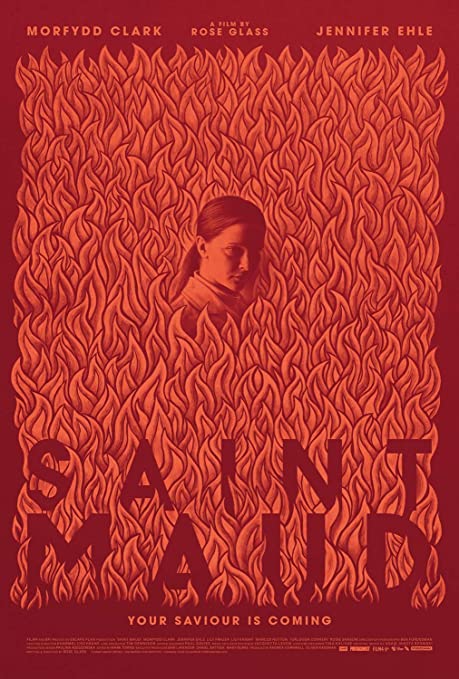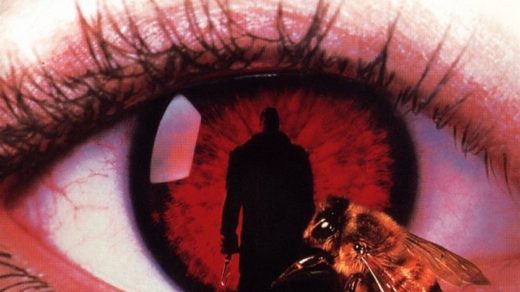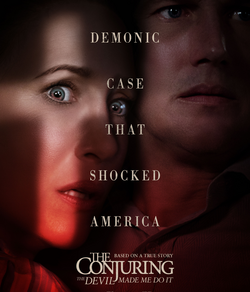
Saint Maud (2019)
Written & Directed by Rose Glass
Oh, Saint Maud, you’ve eluded me for far too long. I first saw your trailer what seems like eons ago back when I could still go to the movies and I was crushed when the theatres shut down and I realized I wouldn’t get a chance to see this on the big screen. I’m still bummed about it, but I can’t be too upset because now Saint Maud is readily available on Amazon Prime and Hulu and I had the chance to see it. The trailer was so great and all the hype I heard from people in the UK, where it was first released, had me so hyped for this film that I was worried it wouldn’t hold up to all that positive buzz. I was wrong for thinking that for even a moment, because wow. Just wow.
The Plot Or What Happens Before Everything Goes To Hell.
Saint Maud focuses on a young hospice worker named Maud, who starts a new assignment taking care of Amanda, an aging dancer/choreographer who is dying of cancer. As the two grow closer, Maud shares her enthusiastic embrace of religion with Amanda, who seems interested in this odd young woman. As we learn more about Maud, her eccentricities become more pronounced, revealing many troubling behaviors that she engages in. As Maud grows closer to Amanda, her desire to help her “lost” charge increases, putting Maud at odds with Amanda’s lifestyle that she seemingly disapproves of. Then things get weird.
How Does This Movie Fly By, But Stay So Effective?
What’s interesting to me about Saint Maud is how it seems to be two conflicting types of movies at the same time. It’s a slow-burn descent into madness type film that has the pacing of a breezy 80-minute slasher. It’s the type of combination that generally wouldn’t work, The Shining certainly couldn’t be 80 minutes plus credits, but there’s something special about Saint Maud that makes this combination feel natural, and I think that’s down to the character of Maud herself. Maud is one of the best horror protagonists I’ve seen in years, one that reminds us what the power of this genre can be, not just to frighten you, although Saint Maud certainly does that, to also disturb you by presenting characters capable of terrible things – characters you can easily empathize with. There is an all-encompassing sorrow to Maud, sorrow that permeates every frame of this film and stares you in the eyes, daring you to not feel bad for this person. Morfydd Clark is an actress to keep your eye on, she brings such depth to this role so naturally that sometimes it feels like we’re watching a documentary.
Hi, Visual Storytelling, I’ve Missed You.
Working in tandem with Clark’s great performance, Saint Maud’s sense of visual storytelling is second to none, deftly blending reality as it is with reality as Maud sees it, to terrifying effect. Beyond those visions though, one of the reasons the quick pacing works so well is that the language of cinema is so strong here that concepts and emotions which could take entire sequences of expository dialogue to establish can be conveyed in a look, a lingering shot, or a sudden flurry of images. Yes, this does mean you have to pay attention to what’s happening on-screen to understand what’s going on. No, that isn’t a bad thing. On a more basic level, the general look of Saint Maud is appealingly drab, reveling in urban decay and poverty, linking this degradation to the spiritual degradation that Maud constantly narrates about.
Pain. Upsetting, Upsetting Pain.
The sequences from the early trailers that stuck with me the most were the quick shots of Maud engaging in self-harm. I was really curious how this would tie into the story, and it all does quite well. None of the really shocking violence in Saint Maud comes across as edgy for the sake of edginess, it all ties depressingly into the psychological issues that Maud clearly suffers from. Psychological horror and body horror are perfectly linked, taking moments that aren’t particularly graphic in terms of the violence presented but making them more impactful by having them mean something more disturbing than simple pain. Pain is an ongoing theme of Saint Maud, particularly pain that women feel, which culminates in a pretty disturbing sequence that tackles the Madonna/Whore Complex that pops up a lot in fiction, and it does so without naming it, and in a way that makes me sick to my stomach even thinking about it. If you can’t tell, Saint Maud gets pretty heavy.
Saint Maud Is A Masterpiece. Now, If You’ll Excuse Me, I Need To Remember What Happiness Feels Like.
Saint Maud stays with you. It takes a truth of humanity, an ugly one definitely but not an inaccurate one, and shoves it into your face and forces you to confront it. A lot of movies talk about “Society, man” but Saint Maud strikes the perfect balance, pointing the finger at damn near everyone, and usually being right. This is an upsetting film in many, many regards, and that’s intensified by the shocking realism on display, the shocking casual cruelty that people show when they think they can get away with it. Maud is as much of a victim as she is a villain, and the ending…that isn’t going to be one that I forget. This one hit me hard, folks. I watch a lot of upsetting movies but the reality of this one resonated like few others. This would be an exceptional movie for any writer/director to make, but a directorial debut? Congratulations on your success Rose Glass, I just don’t know if my heart can take any more of your movies. Seriously though, if you’re into more artistic, heavier horror films, I would strongly recommend Saint Maud, and it’s available on both Amazon Prime and Hulu right now, so you don’t have an excuse not to see it.



Recent Comments